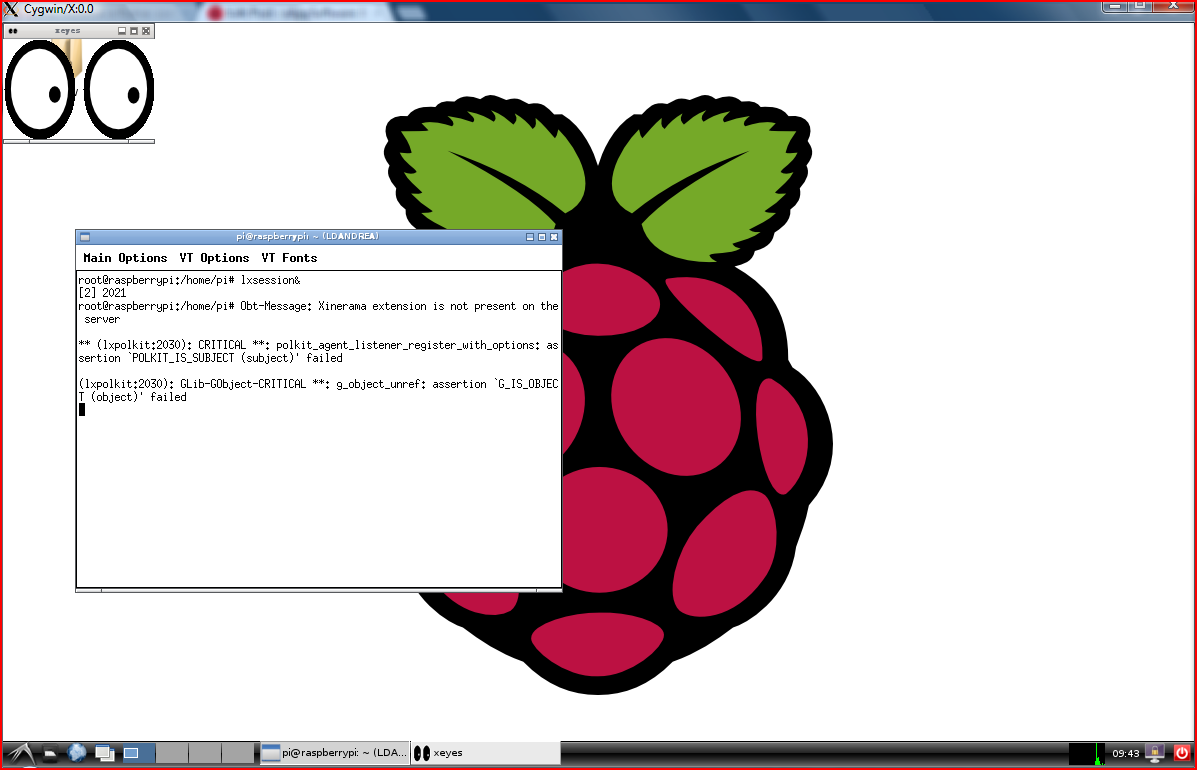After the last article about armhf vs armel architecture I want to show a short list of distros running on Raspberry Pi and armhf accelerated.
Arch Linux ARM is a distribution of Linux for ARM computers. It is aimed at ARMv5 platforms like plug computers, OXNAS-based ARMv6 PogoPlugs, Cortex-A8 platforms such as the BeagleBoard, and Cortex-A9 and Tegra platforms like the PandaBoard and TrimSlice. However, it can run on any device that supports ARMv5te, ARMv6, or ARMv7 instruction sets.
Arch Linux ARM carries forward the Arch Linux philosophy of simplicity and user-centrism, targeting and accommodating competent Linux users by giving them complete control and responsibility over the system. Instructions are provided to assist in navigating the nuances of installation on the varied ARM platforms; however, the system itself will offer little assistance to the user.
The entire distribution is on a rolling-release cycle that can be updated daily through small packages instead of huge updates on a defined release schedule. Most packages are unmodified from what the upstream developer originally released.
Bodhi Linux is a Linux Distribution leveraging the fast, customizable, and beautiful Enlightenment Desktop. Enlightenment coupled with a minimal set of utilities such as a browser, text editor, and package management tools form the solid foundation of Bodhi Linux.
Minimalism is one of Bodhi Linux's two core ideals. The combination of Enlightenment and the core utilities included in a default Bodhi Linux install lead to exceptional speed and low system requirements, while providing a beautiful, useable, and customizable desktop experience.
User choice is another important feature embodied in Bodhi Linux. By only including a small set of default utilities, the user is free to make Bodhi Linux their operating system. Users can install applications from our extremely easy to use AppCenter, apt-get, or Synaptic to suit their individual needs. You make the decision!
Gentoo Linux is a free operating system based on either Linux or FreeBSD that can be automatically optimized and customized for just about any application or need. Extreme configurability, performance and a top-notch user and developer community are all hallmarks of the Gentoo experience.
Thanks to a technology called Portage, Gentoo can become an ideal secure server, development workstation, professional desktop, gaming system, embedded solution or something else — whatever you need it to be. Because of its near-unlimited adaptability, we call Gentoo a metadistribution.
Of course, Gentoo is more than just the software it provides. It is a community built around a distribution which is driven by more than 300 developers and thousands of users. The distribution project provides the means for the users to enjoy Gentoo: documentation, infrastructure (mailinglists, site, forums …), release engineering, software porting, quality assurance, security followup, hardening and more.
PiBang Linux is a Linux distribution for the Raspberry Pi. It is inspired by Crunchbang Linux, and based on Raspbian. Want to know all the differences? Here is a full list of what makes PiBang different from Raspbian.
PiBang Linux is committed to providing a highly configured Openbox desktop environment for the Raspberry Pi. We are also committed to contributing back to the Linux communtiy and working to actively develop the software included in the distribution.
Raspbian is a free operating system based on Debian optimized for the Raspberry Pi hardware. An operating system is the set of basic programs and utilities that make your Raspberry Pi run. However, Raspbian provides more than a pure OS: it comes with over 35,000 packages, pre-compiled software bundled in a nice format for easy installation on your Raspberry Pi.
The initial build of over 35,000 Raspbian packages, optimized for best performance on the Raspberry Pi, was completed in June of 2012. However, Raspbian is still under active development with an emphasis on improving the stability and performance of as many Debian packages as possible.
XBian is a small, fast and lightweight media center distro for the Raspberry Pi, based on a minimal Raspbian image. Our slogan is “XBMC on Raspberry Pi, the bleeding edge” as our main focus is delivering the fastest XBMC solution for the Raspberry Pi.
Raspbmc is a minimal Linux distribution based on Debian that brings XBMC to your Raspberry Pi. This device has an excellent form factor and enough power to handle media playback, making it an ideal component in a low HTPC setup, yet delivering the same XBMC experience that can be enjoyed on much more costly platforms. Raspbmc is brought to you by the developer of the Crystalbuntu Linux Distribution, which brings XBMC and 1080p decoding to the 1st generation Apple TV.
SliTaz GNU/Linux is a free operating system working completely in memory from removable media such as a cdrom or USB key. It is light, speedy and fully installable on a hard drive. SliTaz is distributed in the form of a LiveCD that you can easily burn to a cdrom and boot from. When the system is running you can eject the LiveCD and use your CD drive for other tasks. The Live system provides a fully-featured, working graphical distro and lets you keep your data and personal settings on persistent media. The system can be extended with the Tazpkg package manager and security updates are provided for the cooking and stable versions.

